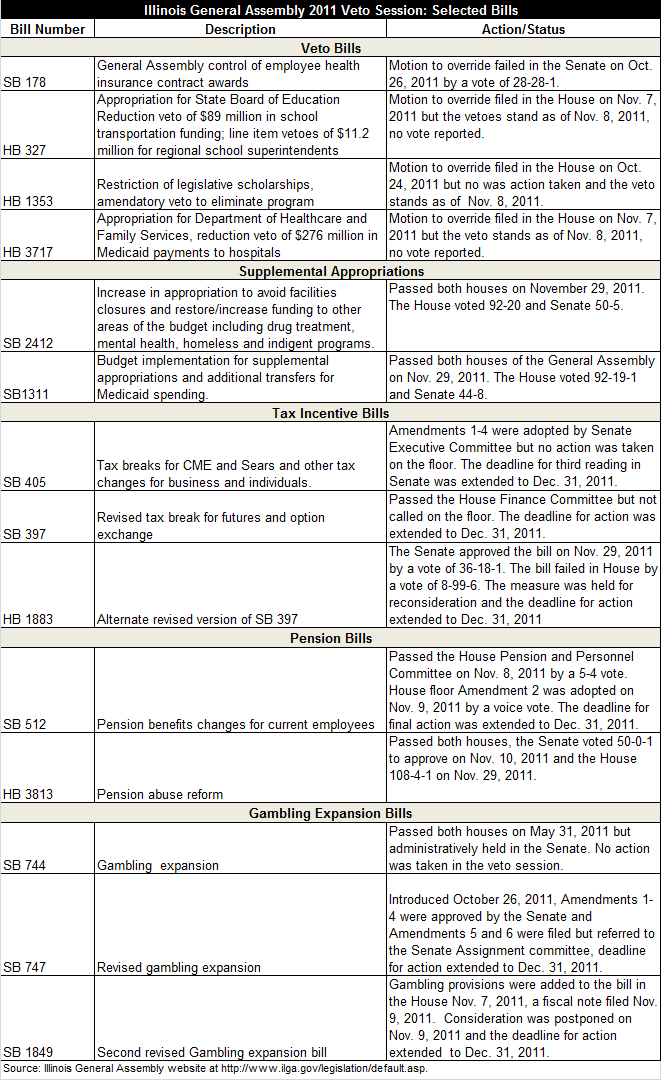December 02, 2011
As previously discussed here, many controversial issues confronted the Illinois General Assembly as it entered its fall veto session. Pension reform, gambling expansion, tax incentives for corporations, the Governor’s budget vetoes and a list of pending facilities closures all loomed large on the fall legislative agenda. The session was originally scheduled for October 25 through October 27 and November 5 through November 8, but an additional day was added to the session on November 29.
In the end the legislature upheld all of the Governor’s vetoes, approved supplemental appropriations to stop facilities closures and passed new rules to curb benefit abuses in the State pension systems.
Elected officials could not agree on a tax incentive package for several large corporations that continued to threaten to leave the State without additional tax breaks. The proposed tax incentives for CME Group and Sears Corporation grew to include renewal of the State’s research and development tax credit, an increase in the earned income tax credit (EITC), an increase in the personal exemption and other tax changes. The total cost of the bill ballooned to an estimated $850 million annually. Several scaled back versions estimated to cost closer to $250 million, one of which included a new tax credit for the live theater district in Chicago, emerged during the extra day of veto session. One of the latter bills eventually passed the Senate but failed in the House.
The General Assembly approved supplemental appropriations totaling $272.8 million. This included $202 million to stop facilities closures that the Governor said were necessary due to underfunding in the budget as originally enacted. It also restored funding for community mental health, substance abuse and several other programs. A budget implementation bill included a transfer from General Funds of $140 million to a new hospital payment fund and allocates a $160 million transfer to the existing Hospital Provider Relief Fund, both intended to pay for additional Medicaid spending. The allocation to the new fund, called the FY12 Hospital Relief Fund, cannot be spent until it is directly appropriated in a subsequent action by the General Assembly. Although the additional Medicaid spending will increase the total FY2012 budget the State will also receive increased federal revenues of approximately 50% of the expenditures through Medicaid reimbursements. The General Assembly upheld the Governor’s vetoes which reduced the spending plan passed by the legislature by $376.4 million.
The legislature did not take up Senate Bill 512, a proposal to reduce non-vested pension benefits for current employees, in the veto session but did pass another reform measure. The new rules in House Bill 3813 are intended to prevent union representatives from double dipping in government retirement systems and prevents them from basing their public pensions on union salaries. It also requires all fraud allegations in the pension systems to be referred to the State’s Attorney Office for investigation.
The following table shows the major budget bills considered in the veto session and any action taken by the General Assembly.

The legislature also passed a bill delaying the Governor’s budget address for FY2013 to February 22, 2012, a week later than the traditional third Wednesday in February.
